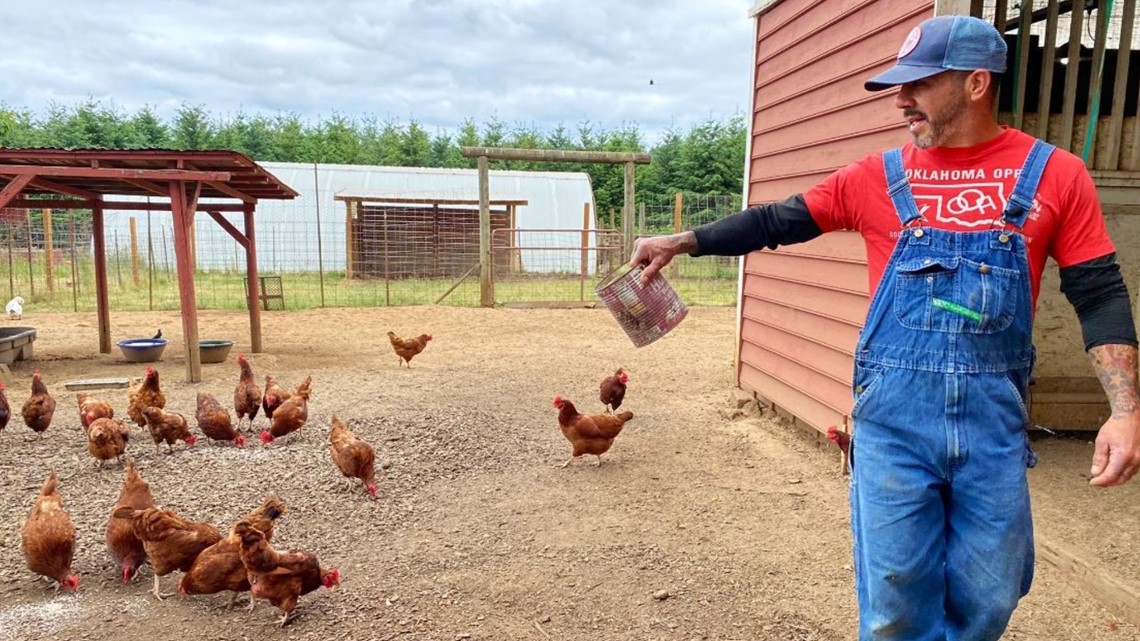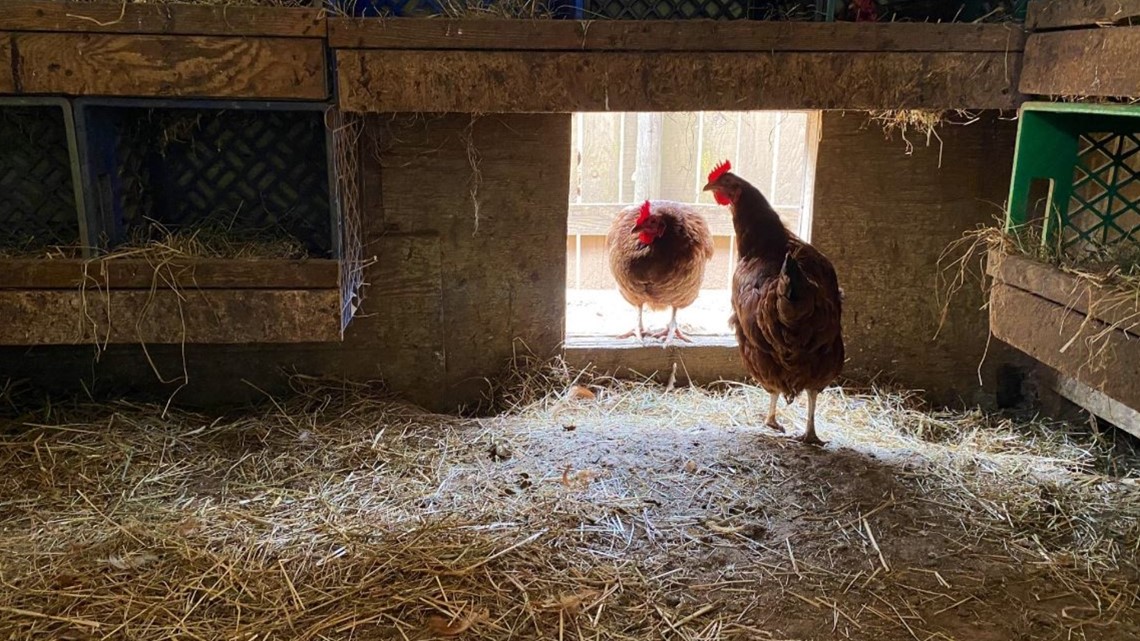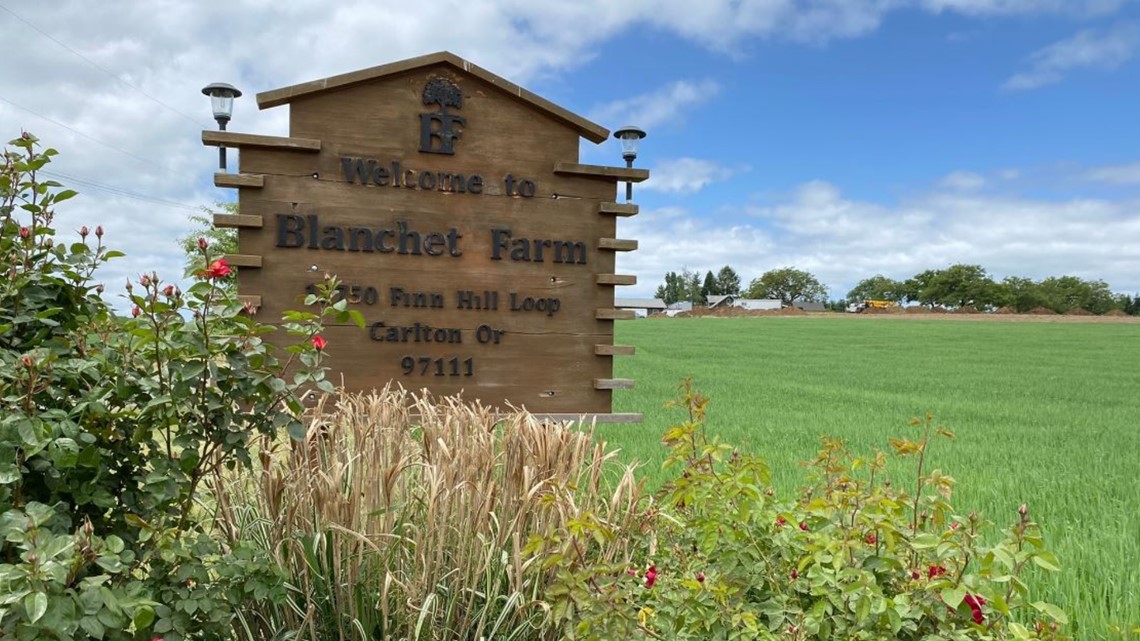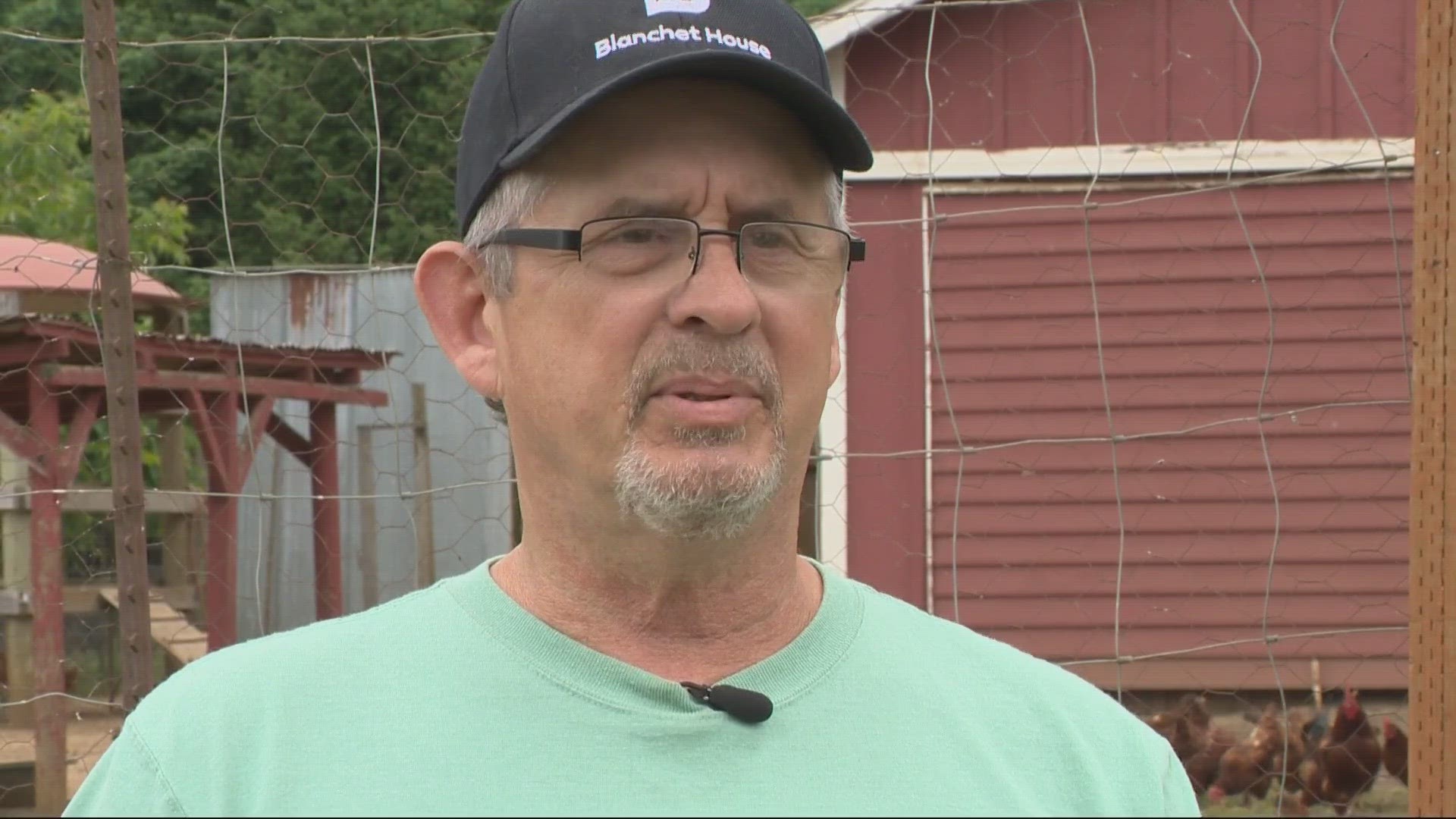CARLTON, Ore. — On a Tuesday morning, a man named Miggs whistles to a herd of goats on a farm in rural Yamhill County. He breaks a loaf of bread and feeds a piece to the neediest of the bunch— giving special attention to the one he’s named “Blondie,” whose light-colored fur stands out from the rest of the flock.
For the past 36 days, Miggs has been at Blanchet Farm in Carlton, a free residential program for people in recovery. Five men are staying there now, and as the farm looks to expand soon with a new dorm facility, they'll be able to provide residence for more people.
“It’s been a beautiful thing. It’s one of a kind for sure,” Miggs said.
About two months ago, he was living in Chicago and addicted to methamphetamines. He found Blanchet Farm online and signed himself up.
“It was hard for me to look in the mirror because I didn’t recognize who I had become. Now it’s a little easier on the eyes,” he said.


Other, more traditional rehab programs never worked for him.
“It’s a good kind of therapy without having counselors or something,” he said of the farm, a program he described as healing, on his own terms.
“You have a lot of time to reflect because these animals aren’t in a hurry. You just take your time, reading them, and, in a sense— you learn your own character,” he said while filling a bucket with a dozen freshly laid eggs. "This is how they show me love," he explained. Some of the chickens he's cared for since birth.


Some of the food harvested at the farm is donated to local churches or Blanchet House, which serves food for those who are homeless or in need in Portland's Old Town.
Ross Sears has run the farm for 15 years, after going through the program himself.
"It builds some self-esteem and lets them feel good about something for a change,” he said. “I can relate to them, which is unique in a lot of ways."


Construction is underway for the new dorms at the farm and with it will come more services to help those in recovery. There will be a ground-breaking on May 31 and they expect to finish the project in about a year.
When it's complete, up to 21 men will be able stay at the farm for six to nine months, or however long it takes them to re-enter society.
“Hopefully, when I go back home, people will see the change and the difference not only physically but, in my actions, and mentally,” said Miggs.

